One of the things that officers don’t like is when parents use police as a threat to small kids:“If you don’t behave, I’m going to call the police.” Please don’t do that. Don’t make us the bad guy. Some of us do a good enough job with that on our own. Some kids in school say, “He’s the officer that works with kids.” That’s good, because when you get kids that young to identify that and it’s not in a negative way, then you kind of have an inkling that you might be doing something right. You might be making an influence a little bit. So I’ll make it a point to go back to that classroom and reiterate, “Yes, I’m the officer that works with kids. I’m not the bad guy that comes and gets kids. I’m the one that works with kids.”
I’m a lieutenant with the St. Louis Metropolitan Police Department. I’ve been a police officer for 24 years. I’m currently the Commander of the Juvenile Division, which means I oversee a unit that handles anything that happens in the schools within the metropolitan area or on a school bus. I’ve been working with kids for about 15 years. A little while after I got on the police department, I started in the Police Athletic League establishing teams and coaching, and then I started doing mentor programs in schools. At one point, I was coaching high school basketball. So, it snowballed into what it’s evolved into now, which are numerous projects that my unit is doing in the schools and programs that we’re doing to connect police officers to the public and to the community to get them to see the other side of police officers and what some of us are really about under the uniform and from behind the badge. We have five or six programs going on right now that directly involve kids and police officers. Our biggest goals are to establish relationships and resources, consider what kind of trauma a child has experienced and how we can affect that, and understand how we get beyond the racial barriers that some of the kids are experiencing.
We try to get them beyond the uniform to understand that this badge has a heart beat.
Being a police officer, my perspective is a little bit different because I bring a perspective of how Ferguson and the lasting effects affected police officers. Everybody looks on the surface to ask, “How did it affect our relationship with the community?” But, deep down, how did it affect us and how does it motivate us to want to be better? What happened in Ferguson could have happened in a whole lot of places. So, how do we work on being better to prevent something like that? How do we work on changing the hearts of those around us so that they take as much pride in projecting the image that the community needs to see in order to feel comfortable? I don’t want somebody to be afraid of me. So with the things that we do – starting with the programs we put in grade schools, middle schools, and high schools – the effort is to change that mindset, and reduce the initial volatile interactions that some young people are having with police officers. We try to get them beyond the uniform to understand that this badge has a heart beat.
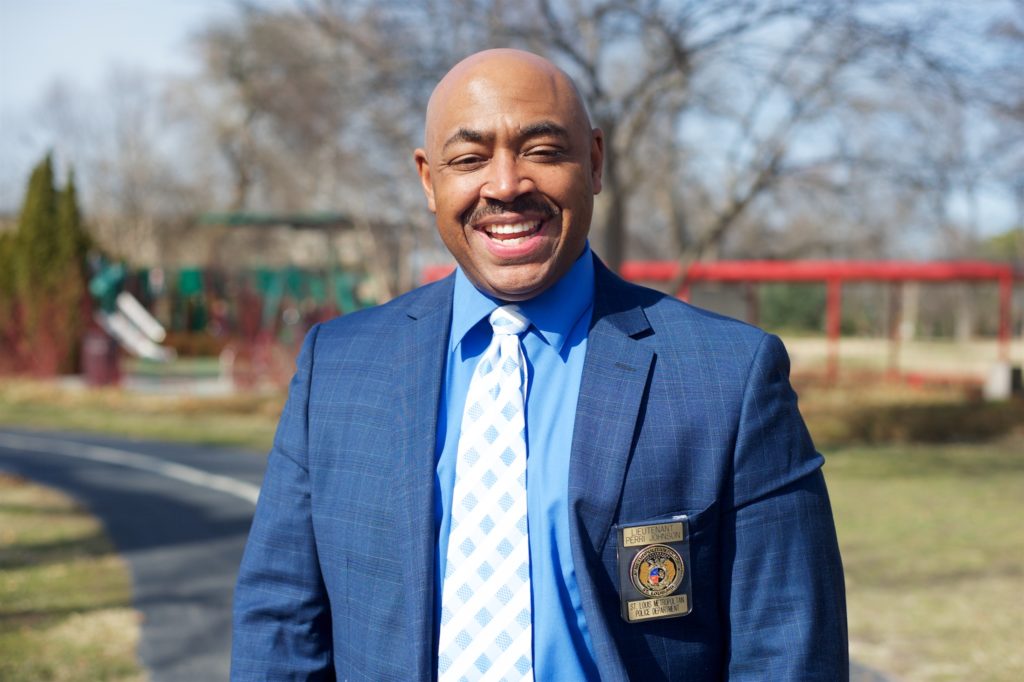
FTF Board Member Perri Johnson, photos by Lindy Drew
One of the hardest things is convincing officers that not everybody hates you, and the things that they don’t like aren’t always personal. So I tell officers, “Get out there, get out of your car, and let people see who you really are. Don’t let them experience the uniform. Let them experience you as a person.” Officers are getting to the point to where they don’t want to be identified as that one that was a part of the bad things that happened. They say, “I’m not that guy. I’m not that person.” I always challenge them then to go out and tell somebody that. “Go out and show somebody that. Go out and prove that you’re not that person. Let them see who you are. Let them inside a little bit. Let them know that you’re human. Once you can do that, then not only can people see beyond the uniform, but you can get people beyond your skin color.” They have to come with your hands and arms open to let people know, “I’m not that person. I’m not that threat.” You have to treat people like you want to be treated. Put your ego to the side, have empathy and compassion for people, and accept people for where they are. Once you can convey that to somebody, you can convince anybody. Now, are there going to be people that just don’t like us just because? Yes. But instead of condemning people like that, why don’t you try to figure out why and what lead them to that point?
The realization is this. There are communities out there that are hurting. That are broken. You’ve got to be willing to understand that. And you’ve got to be willing to step out there on faith and say, “I understand how you feel. I sympathize with you.” That’s not an admission of saying that I’m any less of an officer, I’m any less of a person, or one situation is right or one situation is wrong. It’s saying, “I understand what you’re going through.” Or, “I don’t understand what you’re going through. Let’s talk about it. Tell me what you feel. Let me tell you what I feel.”
When the stuff in Ferguson happened, it wasn’t new. It was new to those who didn’t know about it, but it wasn’t anything new. Social media exposed it. I came to a realization a long time ago, way before Ferguson. When I go home and I take this uniform off, I take this shirt and tie off, then I look just like some of the people that are out here being victimized, and my kids look just like some of these young men that are experiencing these traumatic incidents. They don’t ride around with a sign on their car that says, “I’m a policeman’s son. Leave me alone.” So, guess what? We’re subject to that also. For me that’s the reality. When there are racial disparities and things happen, I have to look at myself. I can’t take this skin color off. Every day that I wake up somebody is going to judge me because of that, and I understand that. I get that. As an officer, I have to recognize that no matter when I have my uniform on, underneath it is this Black man who has Black children who are affected by some of these things that are going on. Blue Lives is a job. Black Lives is me. While I support police officers, I support the good ones, and I’ll always support the good ones. But you can’t compare the two because I can walk away from this blue right now and nobody would ever know that I did it, but I can’t walk away from who I am.
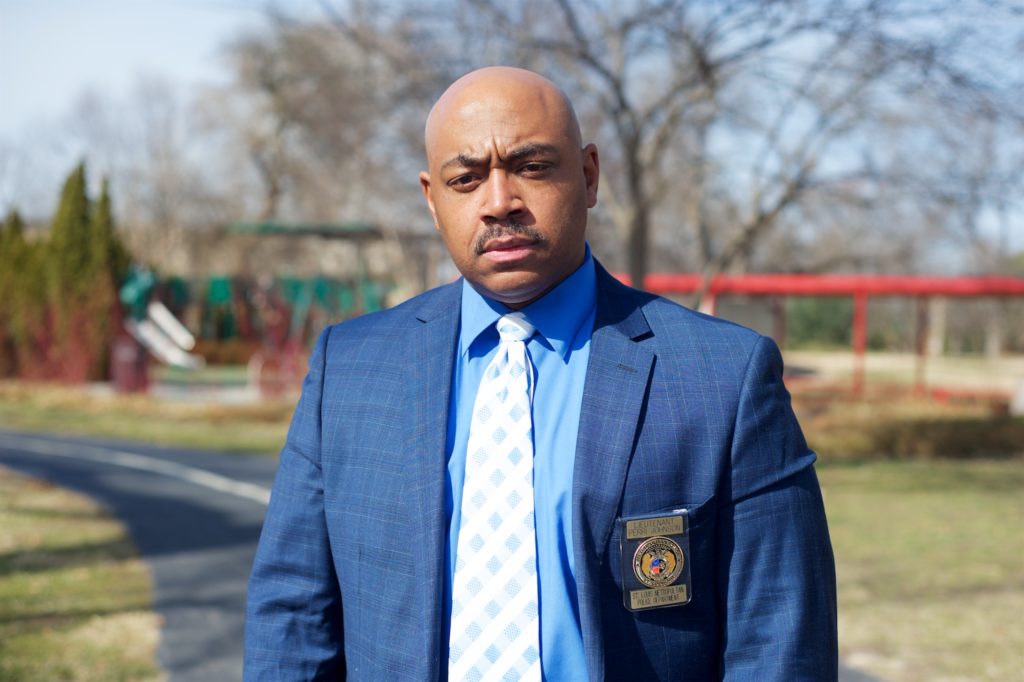
I’ve taught racial profiling in my police department for about 14 years, so I like talking about the things nobody likes to talk about. I’ve been pulled over before and I don’t always identify myself as a police officer because I want to see how I’m going to be treated and see if that automatically changes once I show my badge. If it does, why am I being treated differently? You’re always wondering about that because, just like anybody else, as an officer, I still get nervous if the red lights are behind me. I don’t know what kind of badge that guy is going to come out of. I don’t know what his experiences are or know what he’s feeling. I don’t know anything about that. I had an instance where I got pulled over by a City Police Officer. He gave his spiel, you know, “Who are you? May I have your license?” I went along with it. He kept going on with the interaction. So finally I identified myself and he said, “Oh, okay.” A day later, I’m in my office and he comes walking through the station. I said, “Excuse me, Officer, can you come in here?” “Oh, sir, how are you doing?” I had a discussion with him about safety, because when he stopped me he didn’t call for any backup. It was just him by himself, and he didn’t notify anybody. I turned it into a learning experience. “Let’s talk about why you did what you did.” You always wonder why an officer stops you. You always wonder the real reasoning and if it was a legit reason. My biggest thing is, “How would you treat me if I wasn’t law enforcement?” Because that gives me an indication of how you’re dealing with the public.
I never ask a kid, “What’s wrong with you?” I ask them, “What happened to you? Who failed you?” Those two questions right there will generate answers that will make you react. I was talking with a group of about 24 seventh or eighth graders. When I asked them who failed them, the majority told me, “My dad failed me. Well, in my household it wasn’t good. This is what I saw. This is what I experienced. I have to do this. I have to do that.” They start to give you a peek into their world, and you carry that with you because then you’re wondering, “How can I fix that? How can I change that?” These are kids that are walking around carrying this stuff. You want to ask another scary question, ask a kid, “Who believes that they’ve experienced something that no child of your age should have experienced?” When you ask those questions, you got to be prepared for the answers. I just love working with kids and being in a position to do that on an everyday basis. Today I’ve got an appointment for a pizza and ice-cream party with a second grade class. They had good attendance so they won a pizza party, and I promised I’d bring them an ice cream dessert. The most fun part about that is when I walk in the room, I get all these hugs. You can’t have enough good relationships. When you have relationships in neighborhoods, and schools, and things like that, it matters.
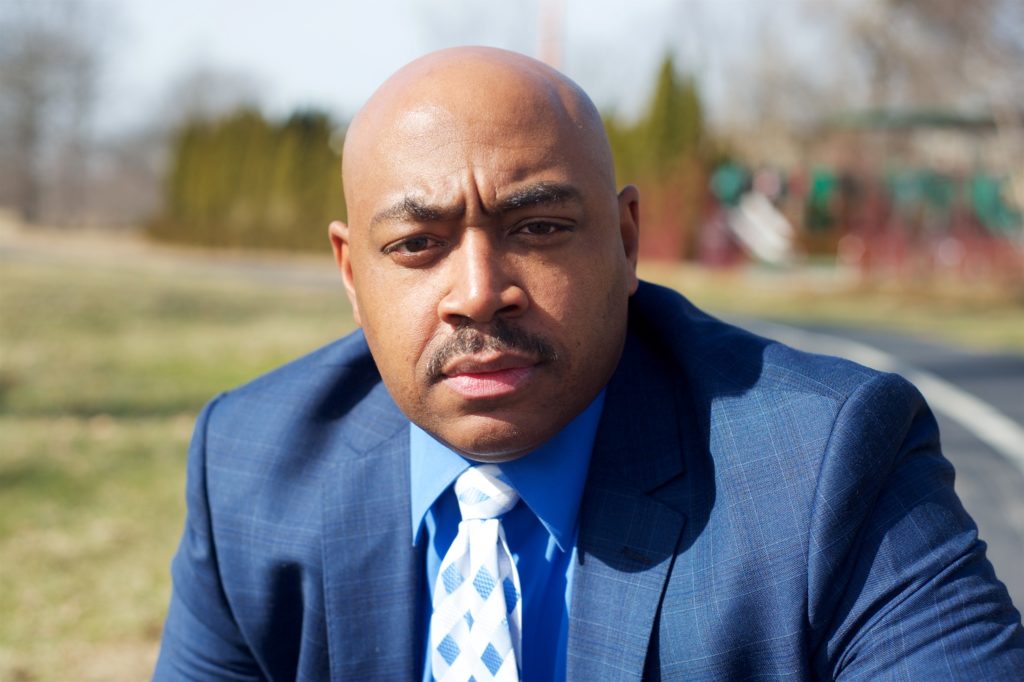
I remember a couple of different instances with officers when I was a kid and the majority of them were good. I was in a county household and a city household. When I was in the county and I interacted with the police officers it was tremendously different than when I was in the city and I interacted with the police officers. Same kid, different departments, different interaction. It’s just the nature of the departments. You have to look at the structure of the police department and what’s being taught from the top down about how they deal with people, how they deal with kids. There are a lot of departments that at one point in time would not put much emphasis on dealing with juveniles because “they’re a pain.” Well, if you take a little time to understand the youth, you might get somewhere. And priorities are different. Some departments don’t put as much value on dealing with young people as they do in dealing with adults.
The focus is often on making arrests instead of there being prevention and alternative things for kids to do. That’s why we do things like the GREAT Program:Gang Resistance Education and Training, where we go into elementary schools. We do the STOP Program:Students Talking it Over with Police, where we go into middle schools. We do the CHESS Club:Cops Helping Enhance Student Skills, in which we send police officers into schools to teach kids chess. The reason we do these types of things is to have an interaction and influence early on so as that kid grows up, the next time he has an interaction with the police, he’s not afraid. He’s had some positive experiences and the environment is created for him to say, “Not all police officers are bad.”
I’ll give another example. Hogan Youth Detention Center is where they send kids that have been convicted of a crime. So every other Wednesday, I go in there and do a thing called the Gentleman’s Club. I take an officer with me and we sit and talk about what it means to be a man. In one of our discussions we started talking about a simple statement:“I’m proud of you.” I said, “Tell me how many of you all have never had somebody tell you that?” The majority of them raised their hands. I had one young man tell me, “Lieutenant Johnson, if my dad told me that, that would be the ultimate.” I said, “I’ll tell you what. When you get out of here, you go on and do great things, and you come back and see me. You know what I’m going to tell you? I’m proud of you.” He just looked at me, like, “Okay!”
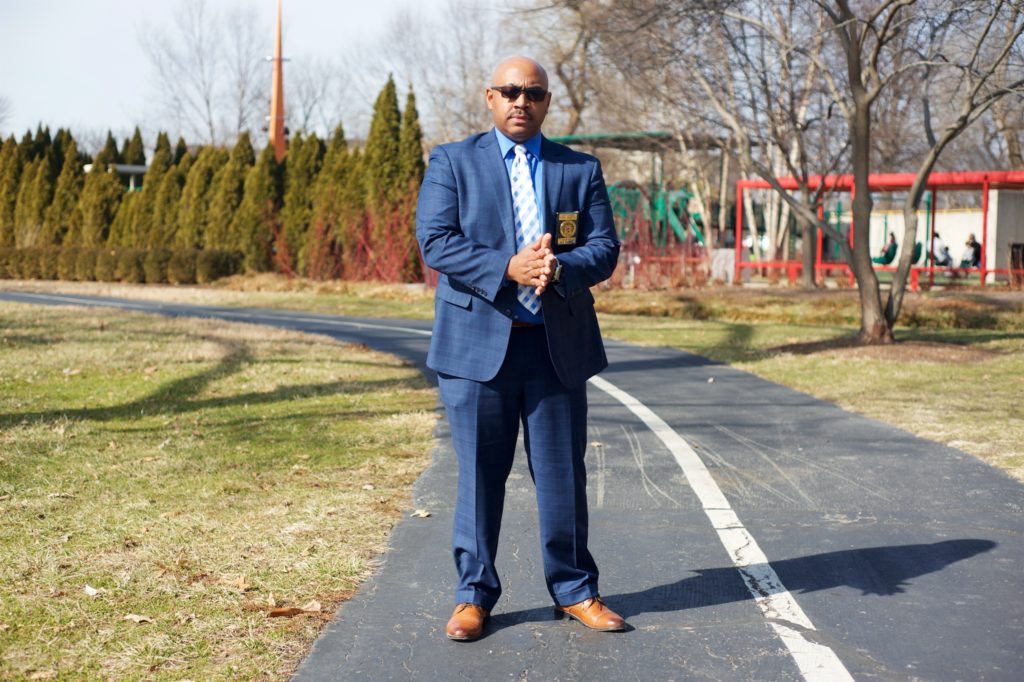
I’m a realist. I tell it like it is. I’m willing to sit down and listen to people, particularly those that have different views than I do. I’m not your typical police officer, because nine chances out of 10, you as a civilian will probably say a lot of things that I agree with. I don’t believe in sticking by somebody if you’re wrong just because we do the same job. If you’re wrong, you’re wrong, and we have to call people out on that. We have to be transparent. We have to hold people accountable. What an officer does negatively can impact me. It can affect the people that I deal with. It can affect the people that I interact with, because I’ve got to go out and rebuild that relationship. If we are going to move forward, it’s going to take all of us. It’s going to take all the entities that are involved. Colleagues who know I am on the board have told me, “That’s great. You’re perfect for that.” And if somebody wants to say something negative about it, that’s fine. Go ahead. This is my life, not yours.
Who are the people that you’re accountable to in this work as a Board member?
The kids that I deal with every day. The kids that are going to get out of Hogan, the kids that are in Gateway, the kids that are in ROTC that I interact with every week. Every time I go into a school and a kid looks at you, and you know they believe in you, that’s who I’m accountable to. When I go see these second graders and I give them hugs, that’s who I’m accountable to, because guess what? If we don’t fight for their future, who is? If we’re going to fix things, it’s going to take all of us. We can’t stand outside the door looking in through the window. We’ve got to be a part of it and hold people accountable. I’m going to hold people on this Board accountable. If you say the wrong thing, I’m going to let you know. If you say something that’s incorrect, then I’m going to let you know. I’m also going to give you information, and I want you to feel comfortable with me to say, “Hey, this is what I feel. This is what I believe.” We need to ask people the hard questions. “Come to the table, sit with me, and let’s talk about this. Let’s talk about your world and let’s talk about my world. Let’s talk about the differences. Let’s talk about how you got to where you are and how I got to where I am.” If you call yourself a real person, if you’re real about who you say you are, then guess what? I’m going to ask you the right questions that are either going to confirm that you want to work or expose who you really are.
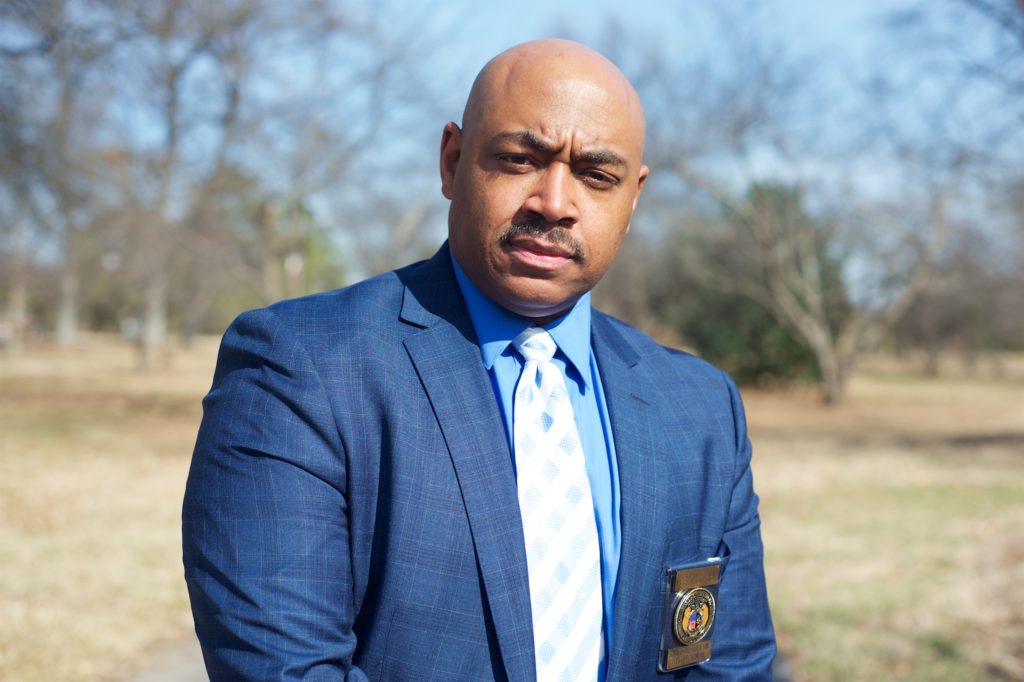
Every time I go in into a school, I’m thinking about all these kids being provided with the same opportunities. Every time I go into a facility like Hogan and the population is the majority African-American, I’m thinking about the inequity that contributed to that. I’m thinking about the system as a whole. How can we make it fair so that everybody has the same chance, everybody has the same opportunity, or everybody is presented with the same obstacles? Some of us get here with obstacles that we didn’t ask for, but they’re there, so how do we get them past those obstacles to level the playing field? When I think of Forward Through Ferguson and racial equity, I’m thinking along all of those lines. Are the interactions in North St. Louis the same as they are in South St. Louis? Are they the same in the central corridor? Are they the same in the various neighborhoods? When we look through that racial equity lens, what are we seeing? Is that judgment clouded? Is it tainted? All those types of things. I want people to see it for what it is, and let’s work to make it better.
The hardest thing to wrap my head around within all of this is that it’s 2017 and all this is still happening. I’m excited about the multi-cultures of people that are recognizing it now and working towards making things better. That excites me, but the fact that it’s 2017 and we still have things happening, we still have people that aren’t being held accountable, we still have people that are sidestepping justice when it’s right there in our face, when we see it exactly for what it is… I don’t need to see what happened before to change my opinion on what’s still happening now. The fact that we have people that are still falling into that rhetoric of us versus them, it’s just… that isn’t it. Look at where that’s gotten us. It hasn’t gotten us anywhere. You can’t get caught up in the us versus them. Are there going to be some people that don’t like us? Yeah. That comes with the job. But there’s going to be a lot of people out there that do like you, and it’s up to you to give them a chance to love you. If I had to say one thing, it ain’t about being soft, it ain’t about being letting your guard down. We know how to assess threats. We know how to assess danger. But there are some people out there that just want to appreciate you for who you are and to know that you’re not that guy that they always see in the news.
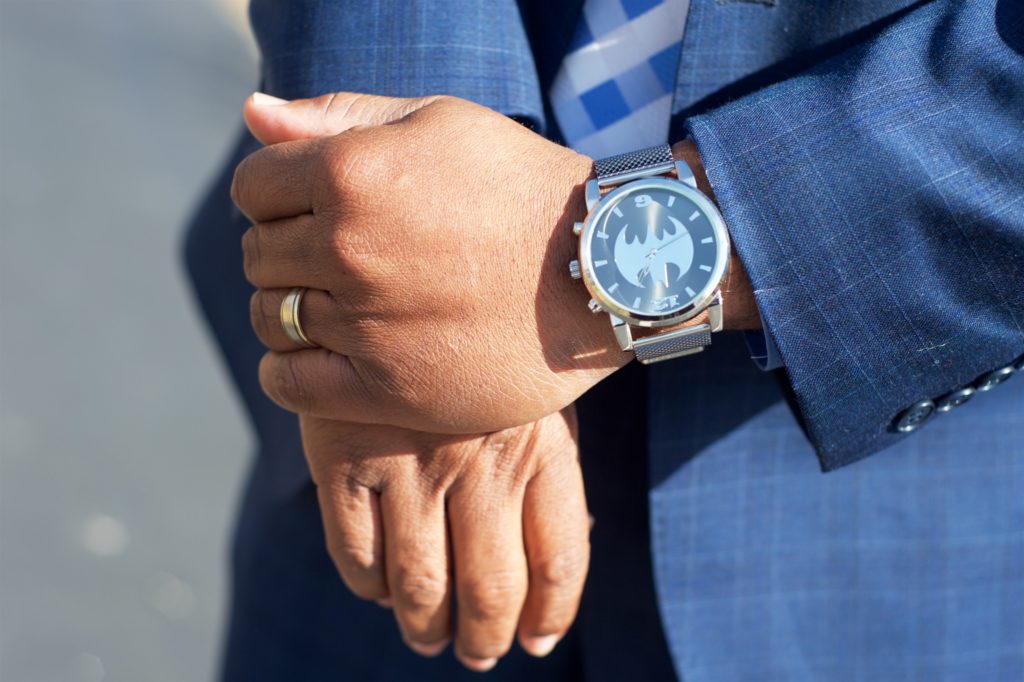
My kids are 20 and 18. They don’t know I just got the position on the board yet because I haven’t taken the time to tell them. I’ll tell you a funny story. I’m very humble about what I do. I don’t look for accolades. I don’t look for a pat on the back. A friend of mine recently invited me to his church and he gave me an award. He’s a former police officer, and he said, “Send me your bio about what you do. Don’t hold back. Tell me everything. If you don’t, I know what you do.” I’m like, “Alright, cool, no problem.” I sent him everything, and so we went to church that day and my mom and a couple of my sisters went, too. He started reading what I had done and he kept saying, “And there’s more, and there’s more, and there’s more.” At the end of it my mom goes, “I didn’t realize you’d done all that.” I said, “Mom, you know, when I do things I just do them.”
I took my 20-year-old son into Hogan with me and one of the proudest moments I had was when a young man, who I had already had a relationship with, came and sat next to him. They started talking to each other. This one young man in there that I’m particular to, Arvell, who is 19, I’m drawn to him and his personality and we’ve established a rapport. When we left my son said, “Dad, keep doing that. Keep doing that.” I was like, “Wow.” And then when I went back to Hogan, and Arvell asked, “How’s PJ doing?” that’s when I knew you’re doing things the right way.
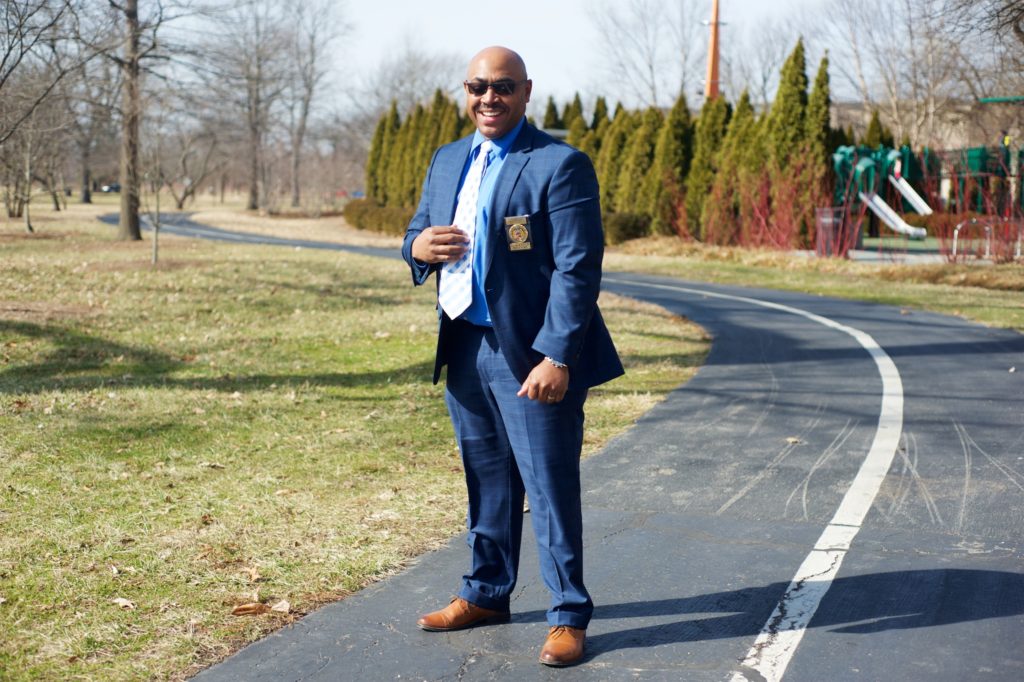
I’m a firm believer that everything happens within its own time frame. My experiences and the things that God has blessed me to do have brought me to this point, and I’m hoping that through those and through what I’ve learned and what we’re able to do, we can reach a multitude of other people to get them to look in the right direction. I want not just the community, but I want the police community to look in the right direction and understand that just because these things have happened doesn’t mean they have to define us. It doesn’t mean we have to say that this is all of us. There’s room to get better, to be better. And that’s something that officers nationwide can realize and understand. There are going to be people out there where you’re going to have to love on them and they’re going to love on you back, and you can’t be afraid of that.

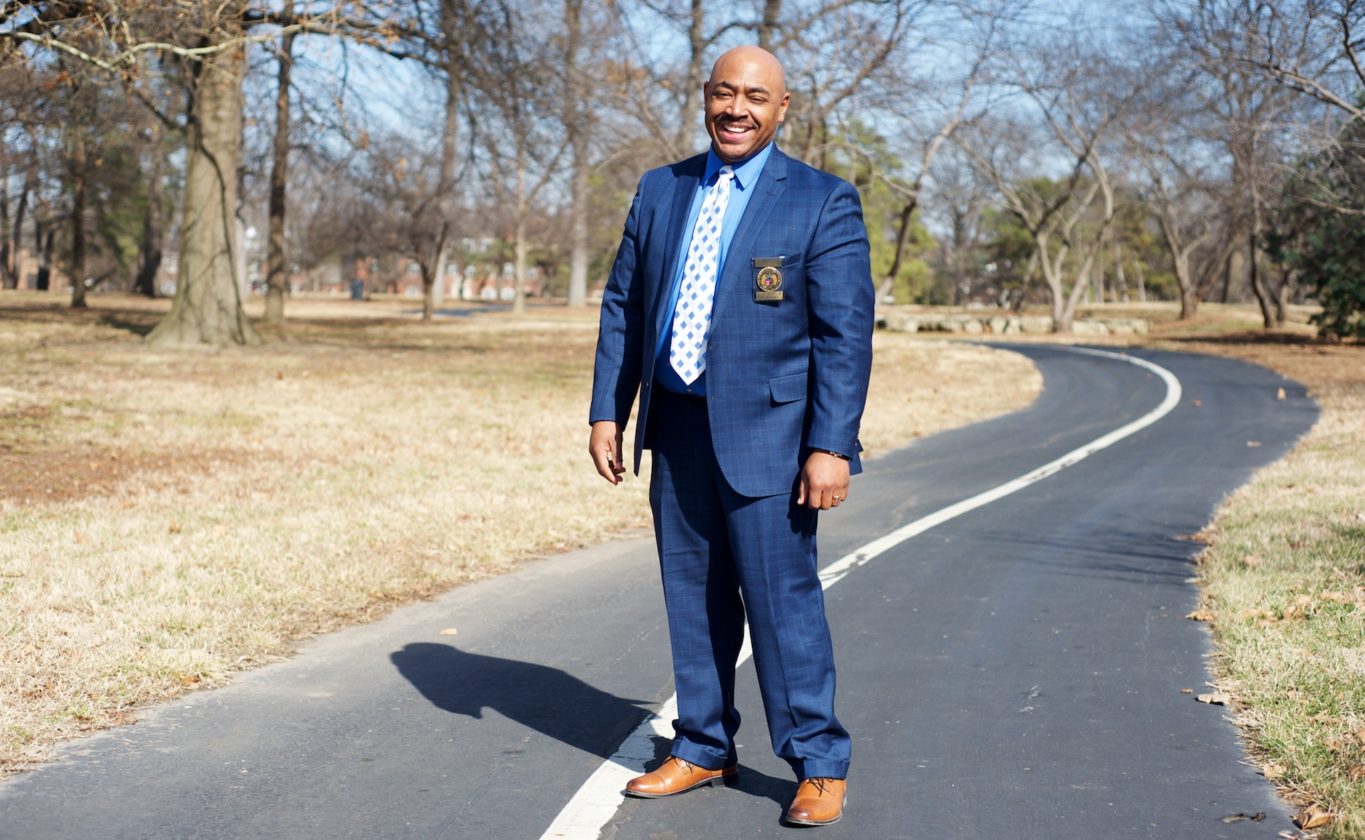
#FwdThruFerguson